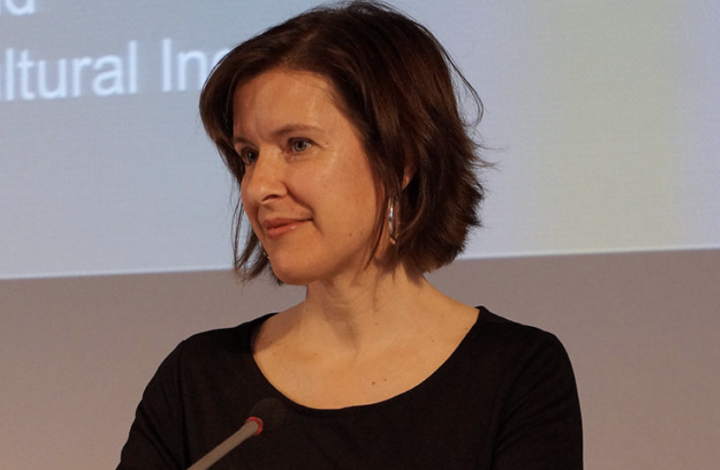Tita Chico
NIAS fellow

Project title
Devices of Enlightenment: A Literary History of Technology
Research question
Devices seem to be a ubiquitous feature of modern life, shaping who and what we can be. But what is a device and why does it matter to understanding British Enlightenment--and today?
Project description
Tita Chico explores the intertwined history of technology and literature at the core of what we now recognise as the modern “device”.
In the long eighteenth century (c. 1660–1800), the concept of the “device” was understood both as a “design” and a “project”. During this period, it reflected a deep interweaving of Enlightenment-era technological innovation and imaginative literary practice—an interplay with far-reaching ethical and cultural consequences.
Chico’s research examines a wide range of materials: microscopes and minute observations; encyclopaedias and dictionaries; anatomical studies and library systems; mathematics and periodicals; early language machines and questions of authorship; thermometers and landscape poetry (such as the Georgic tradition). Through this interdisciplinary lens, she argues that devices of the eighteenth century fundamentally transformed intellectual and literary production. In doing so, they helped to construct new “truths” about the world—truths that both enabled and constrained emerging ideas of identity, community, and human agency.
By uncovering how eighteenth-century devices shaped knowledge, identity, and authority, Chico’s work offers critical insights into the ways today’s technologies—such as algorithms, digital platforms, and AI—continue to structure our understanding of truth, agency, and collective life.
Selected publications
- On Wonder. Cambridge: Cambridge University Press, 2025
- The Experimental Imagination: Literary Knowledge and Science in the British Enlightenment. Stanford, CA: Stanford University Press, 2018. Paperback, 2020
- “Eighteenth-Century Science and Culture.” Routledge Companion to Eighteenth-Century Literatures in English. Edited by Suvir Kaul, Nicole Aljoe, and Sarah Eron, 471-484. London: Routledge, 2024